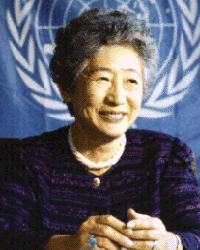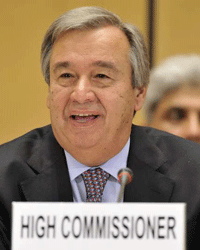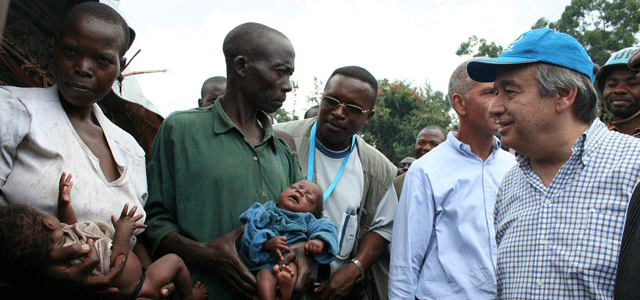The appointment of the UN’s High Commissioner for Refugees is one of the more interesting in terms of… its term. And this morning’s decision by the General Assembly continues this quirk of multilateral apppointments.
The Statute for the Office of the UNHCR ascribes a three-year term to the post, but that has ironically proven the exception, not the rule. For most Commissioners, as the end of their term nears, the Secretary General and the General Assembly have almost invariably agree to extend it from as much as two to five additional years.

Among recent office-holders, Sadako Ogata assumed office in January 1991 for the nominal three-year term. But before her term concluded in December 1993, she was reelected for a further five years. As that term neared its conclusion in 1998, she was re-elected yet again, this time for 2 years. Ogata’s successor, Ruud Lubbers, took over on 1 January 2001. In 2003, he agreed to stay on for additional two years, through December 2005. (He would end up resigning in February of that year due to allegation of sexual harrassment.).
In May 2005, the General Assembly elected the current High Commissioner, António Guterres. But anticipating the perennial extension, then-Secretary General Kofi Annan and the General Assembly forewent the pretense of the statutory three-year term and appointed Mr. Guterres to the post for five years.

On Monday morning, the General Assembly accepted the recommendation of Secretary General Ban Ki Moon and extended Mr. Guterres’ term yet again. In this instance however, we might be moving toward some semblance of conformity. The extension was simply for an additional 6 1/2 months. Rather than step aside this June, Mr. Guterres will remain in office through the end of the year. This reflects a best practice that has been adopted for a number of multilateral posts, including those (like the Human Rights Council) which have been changed in recent years to match the calendar year.
Either that, or the Secretary General is behind on his nomination paperwork and needs an “extension.” But let’s give him the benefit of the doubt in this case, shall we?

